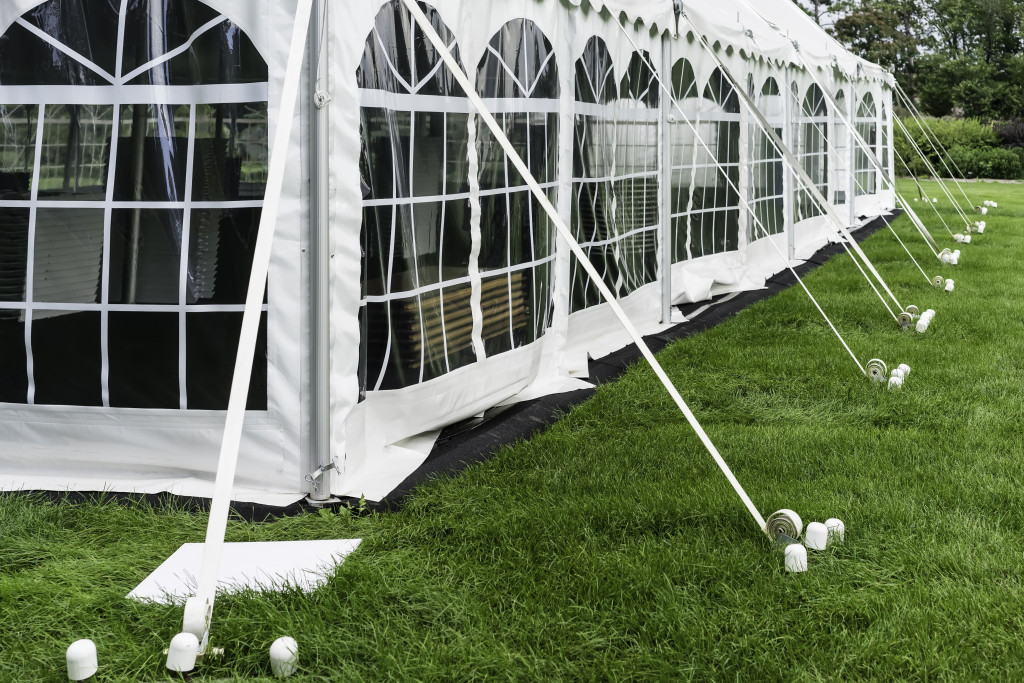- Homeowners can make profitable ventures from their properties by turning them into event venues.
- Turning a home into an events venue requires understanding local regulations, making structural changes, and securing third-party services.
- Zoning laws, insurance requirements, safety standards, and parking regulations must all be considered before committing to changes.
- Structural changes may include expanding living space, adding catering or restroom facilities, or building outdoor seating areas.
- Securing third-party event services can ensure that the event exceeds guests’ expectations and leads to more bookings.
More and more homeowners are turning their properties into profitable ventures, especially as the real estate market grows. Statistics show that over 10 million households in the United States own rental property, indicating that this trend is becoming increasingly popular. Nearly 6% of all homeowners in the U.S. have at least one income-producing rental property, and those numbers continue to rise each year.
While the rental business provides the opportunity for some extra cash, it also requires a lot of time and energy. Many rental property owners spend hours weekly dealing with tenant issues and maintenance requests. Turning their homes into events venues may be an ideal solution for those who want to earn more money from their properties but don’t have the time or resources to manage them full-time.
Events venues allow homeowners to make money without dealing with tenants or long-term leases. Events like weddings, birthday parties, corporate meetings, and conferences can all be held in private residences equipped with the right amenities. In addition to providing a steady stream of income, renting out space for events provides homeowners with unique opportunities to establish themselves as local hosts and potentially attract new customers.
However, turning a home into an events venue requires more than just opening the doors and welcoming guests. Homeowners must make several changes to create a suitable space for hosting events. Here are a few of them.
Learning Local Regulations
Of course, most residential properties have designs specifically tailored to the needs of a family. Preparing a home for events may require significant changes, which could be subject to local regulations. Homeowners should learn what is allowed in their area before they make any commitments or investments.
Here are a few things to know about local regulations when it comes to events venues:
Zoning Laws
Homeowners must check the zoning laws in their city or town to ensure that they can legally host events at their residences. Some areas may require a special permit to allow events, while others may not.
Insurance & Licenses
Homeowners should also familiarize themselves with the insurance and license requirements for hosting events. Many states require liability insurance if alcohol is served and separate licensing for catering services, entertainment providers, etc. It’s essential to understand what is needed before committing to any changes.
Safety & Accessibility Requirements
Event venues must meet particular safety and accessibility standards to comply with the law. Homeowners must ensure that their property meets these requirements before hosting any guests.
Parking Regulations
Local parking regulations should also be taken into consideration. Hosting significant events may require additional parking or permits to accommodate guests.
Making Structural Changes

Once the legal and regulatory issues are taken care of, homeowners can start making structural changes to their property to prepare it for events. These changes may include expanding the living space, adding a catering kitchen or restroom facilities, or even building an outdoor area with seating.
In addition to these significant renovations, more minor details like furnishing the space, hiring staff members, and finding vendors should also be considered. However, with careful planning and preparation, any home can be transformed into an event venue that is both profitable and enjoyable.
Of course, part of your property might have to stay because you want to live there. If that is the case, limiting accessibility is a way to preserve your home and make it possible to rent out the spaces you no longer need.
Securing Third-Party Event Services

To host successful and profitable events, homeowners should also look into third-party event services. These can include everything from catering companies and DJs to florists and photographers.
By partnering with the right vendors, homeowners can ensure that their events exceed their guests’ expectations. This can lead to more bookings, better reviews, and ultimately more profit for the homeowner.
You can also consider generator rental services for outdoor events to make them more cost-effective. This will minimize your electricity costs and still provide power for guests and equipment. When unused, you can avoid getting high electricity bills from your property.
Final Thoughts
In conclusion, turning a home into an events venue allows homeowners to make money without dealing with tenants or long-term leases. However, it also requires careful planning and preparation to meet all of the necessary legal requirements and create a suitable space for hosting events. With the right changes, any home can be transformed into an events venue that is both profitable and enjoyable.
